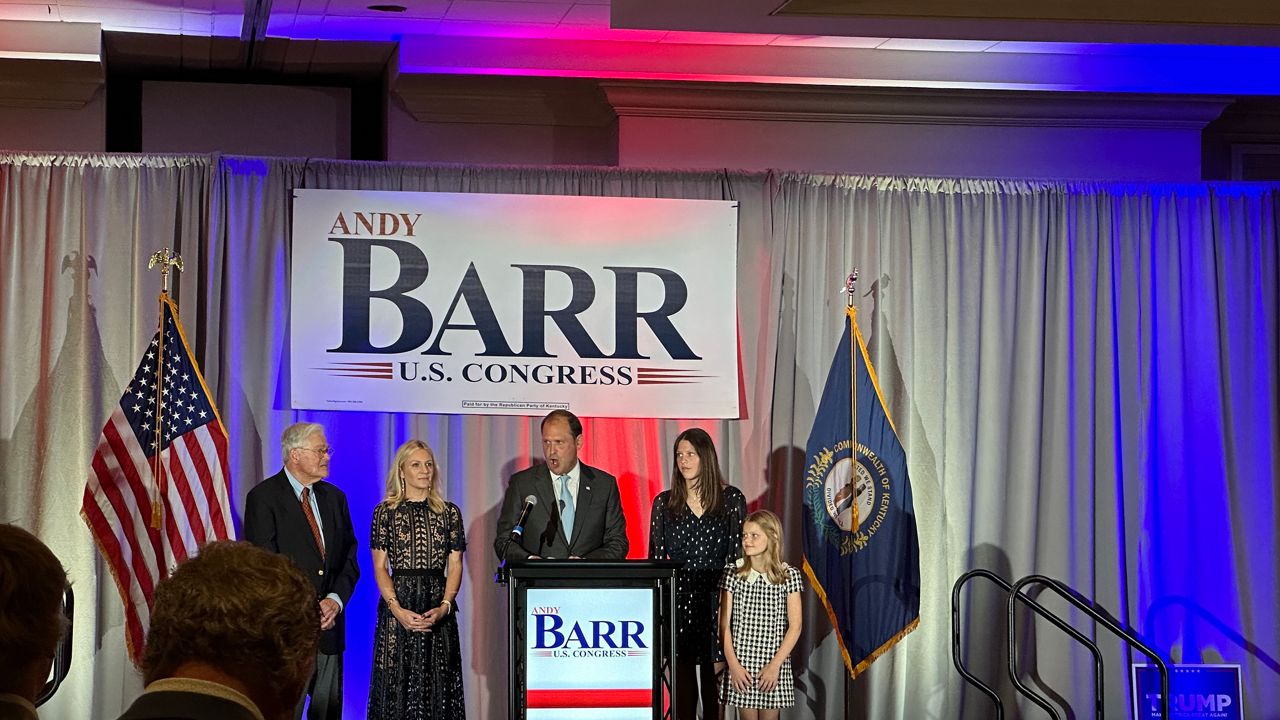KENTUCKY — LG&E and KU, the two largest energy-providers in Kentucky, are asking customers to pay higher rates to help them come up with an extra $334 million in revenue per year.
What You Need To Know
- LG&E, KU asking customers to pay higher rates to help them come up with an extra $334 million in revenue per year
- Company spokeswoman Natasha Collins says the extra money is needed to continue improving service
- For a customer with both gas, electric service, the increase could mean an extra $215 per year, while people who only get electricity would pay around $140 extra per year
- Several groups have intervened, like the Kentucky Attorney General’s office, Louisville and Lexington city governments, The Metropolitan Housing Coalition, and more
Company spokeswoman Natasha Collins says the extra money is needed to continue improving service.
“It’s really no different than if you have a home, and you need to continue to invest in your home so that you can stay on top of anything that may happen within it to keep it in the best shape possible,” Collins said.
Starting later this year, LG&E customers may be paying an extra 11.8% on their power bills, while KU customers could pay nearly 10.7% more, all depending on what the Public Service Commission allows.
LG&E also requested a nearly 9.4% increase for gas customers.
For a customer with both gas and electric service, the increase could mean an extra $215 per year, while people who only get electricity would pay around $140 extra per year.
LG&E and KU requested the increase through the Public Service Commission in November and several groups have intervened, including the Kentucky Attorney General’s office, Louisville and Lexington city governments, big businesses like WalMart and Kroger, and advocacy groups like The Metropolitan Housing Coalition (MHC).
MHC Executive Director Cathy Kuhn said the increase would hurt people who are already fighting to keep their homes.
“We, of course, feel that when we’re talking about safe housing, you can’t leave out utilities,” Kuhn said. “Especially when we’re in the middle of a pandemic.”
LG&E and KU CEO Paul Thompson told regulators in November that more than 100,000 people were at least a month behind on their bills.
“We have thousands and thousands of families who have felt the economic fallout associated with the pandemic, and so adding a $200 [per year] increase to their utility bill could very well meaning the difference between remaining housed and not,” Kuhn said.
Kuhn says the utility providers are also putting more emphasis on fixed meter fees, which hurts customers who use less energy— a group Kuhn says includes many low and fixed-income residents.
The rate increase could even impact the solar industry.
Solar energy producers can sell any extra electricity they produce each month back to LG&E and KU. Now, LG&E and KU want to lower the amount they pay the so-called “net metering” customers by 75%.
Andy McDonald with the Kentucky Solar Energy Society said it might not be worth the investment.
“I think many people who might consider net metering today would be very discouraged from doing it,” McDonald said.
In the current system, utility companies pay the same rate for extra energy as they charge customers for their electricity. McDonald says the new rate would be unfair.
“It’s like you’re consenting to being taken advantage of,” McDonald said.
Collins says LG&E and KU have put out some measures to help minimize the impact of the new rates, including a credit for the first year it’s implemented to ease the burden.
“We know that our customers and our communities have been struggling and that has been something we have thought about; there was careful consideration and a delay in our filing,” Collins said. “We’re moving forward and have moved forward with the filing because we believe the best way that we can support our customers and our communities is by continuing to do our job in providing safe, reliable service: keeping the lights on, keeping the gas flowing.”
Depending on how the Public Service Commission moves forward, the rate increases likely wouldn’t take effect until the middle of the year.
The last rate hike for LG&E and KU came in 2019, when the commission allowed them to collect an additional $77 million more in revenue.










